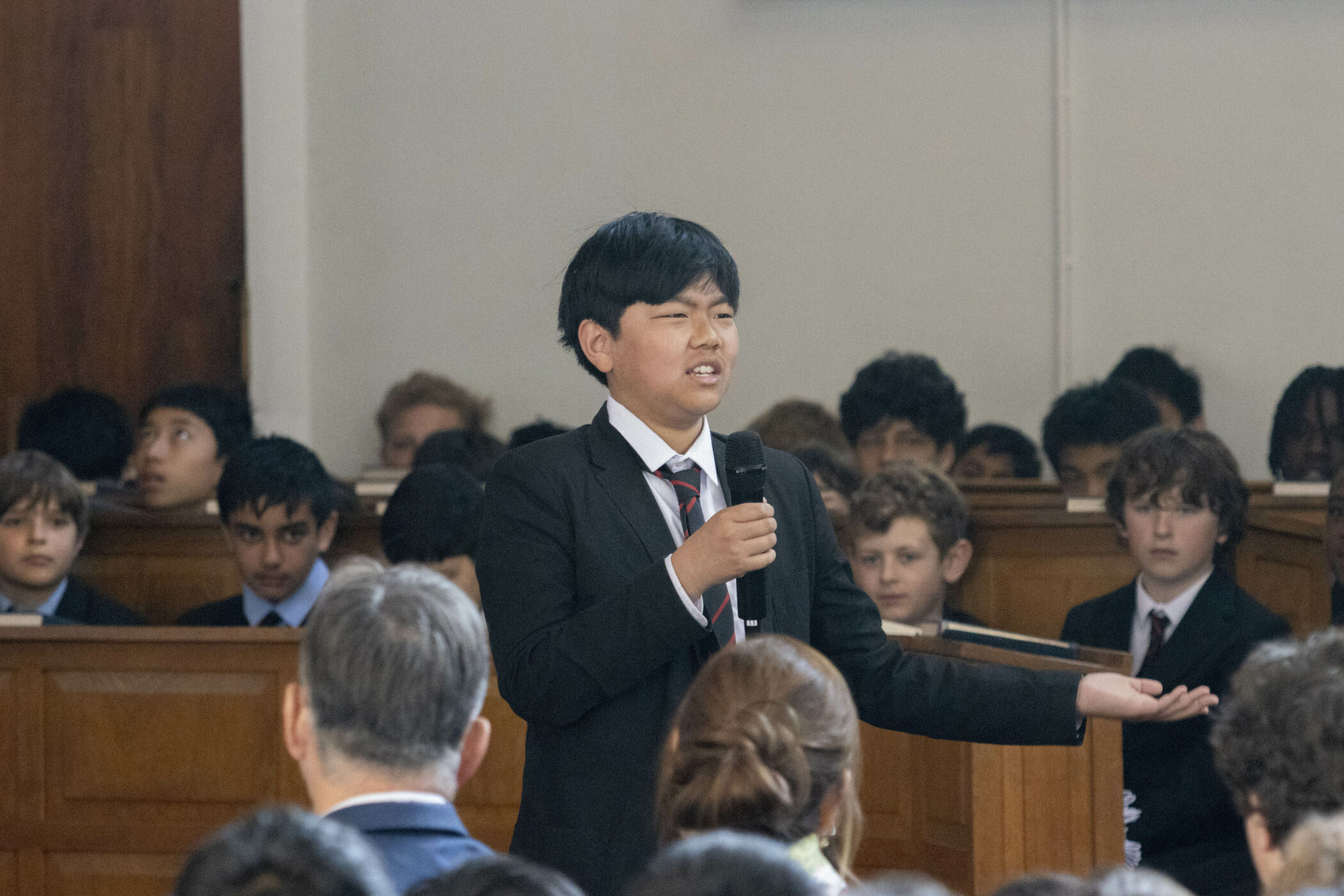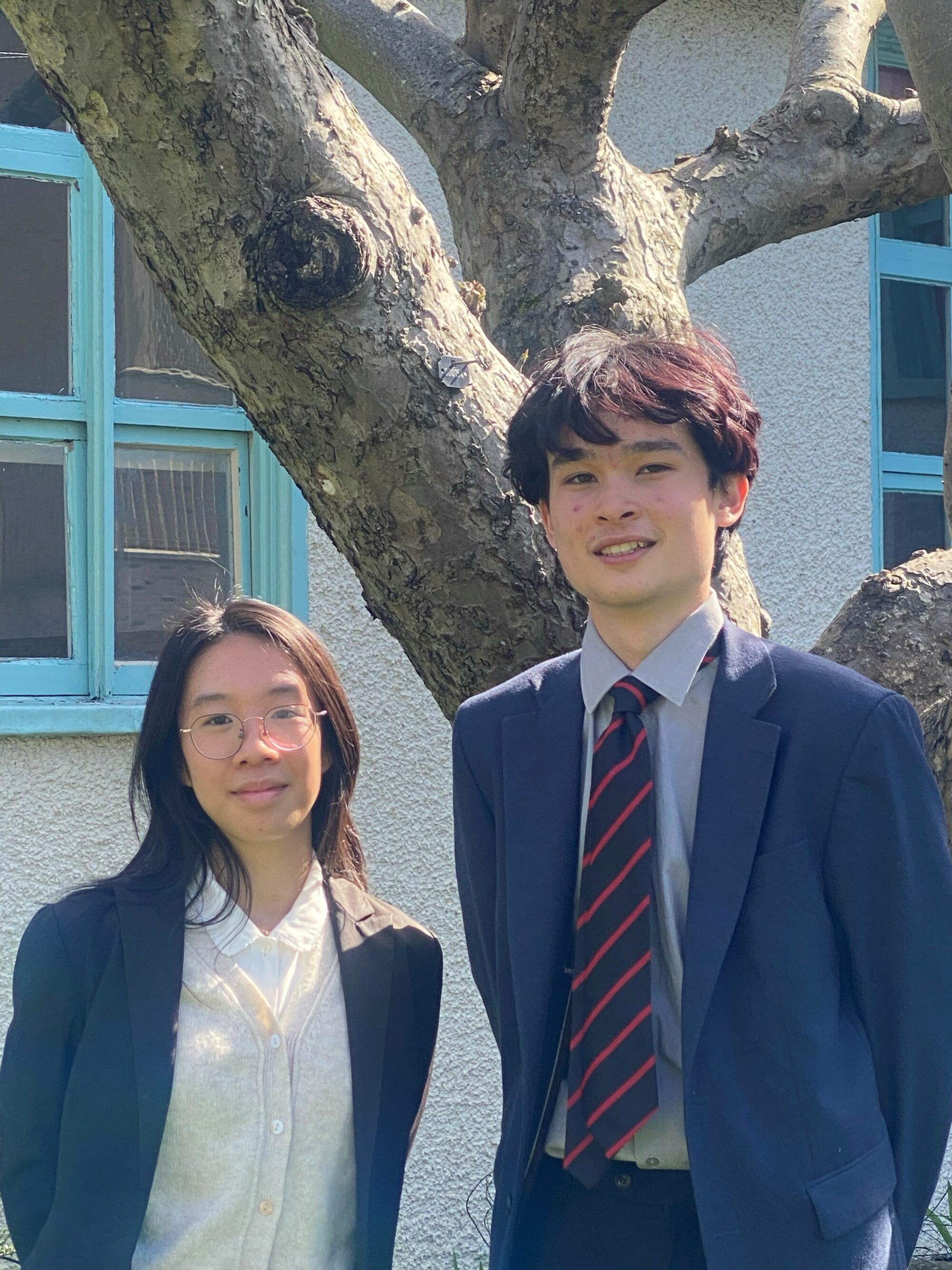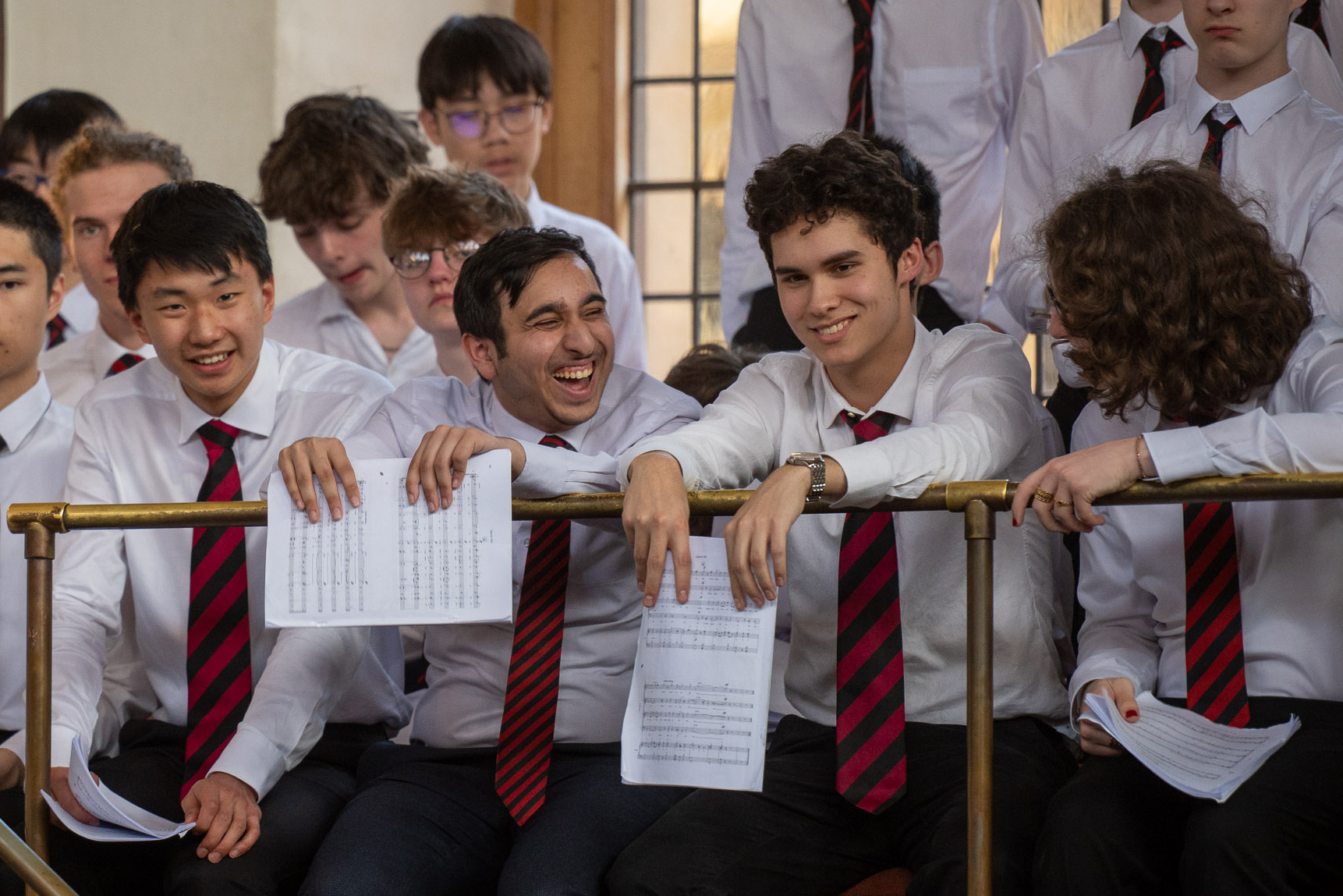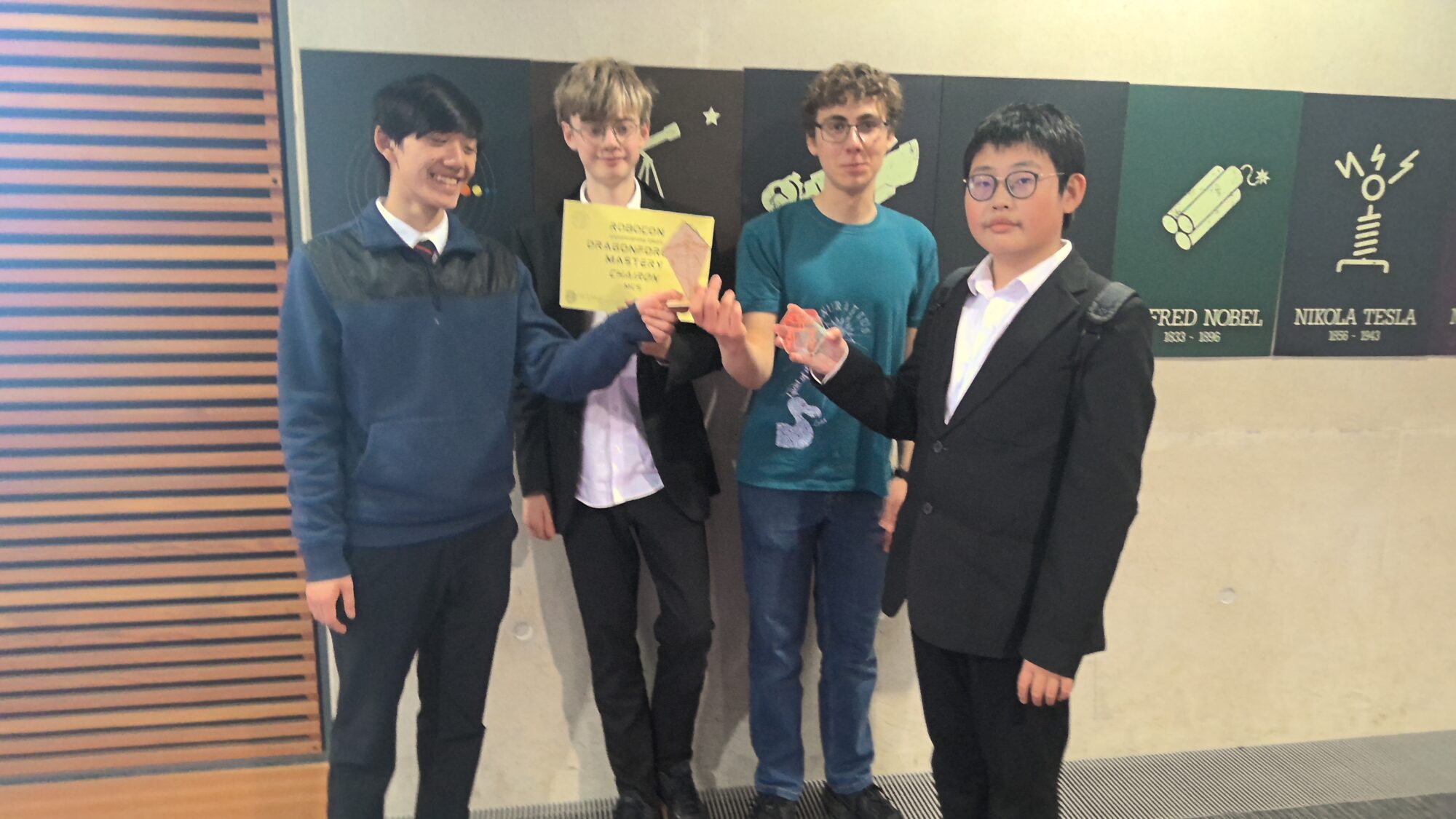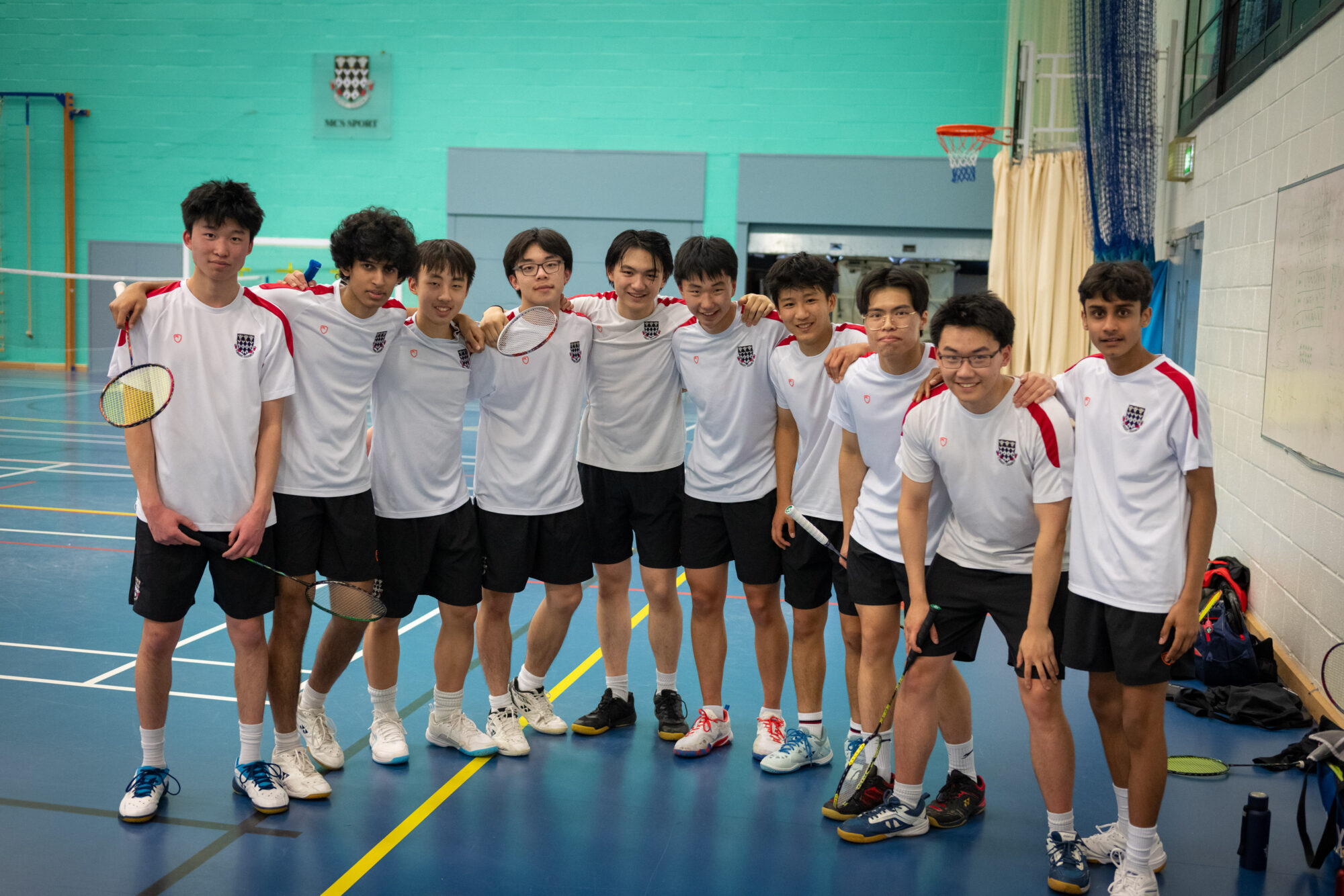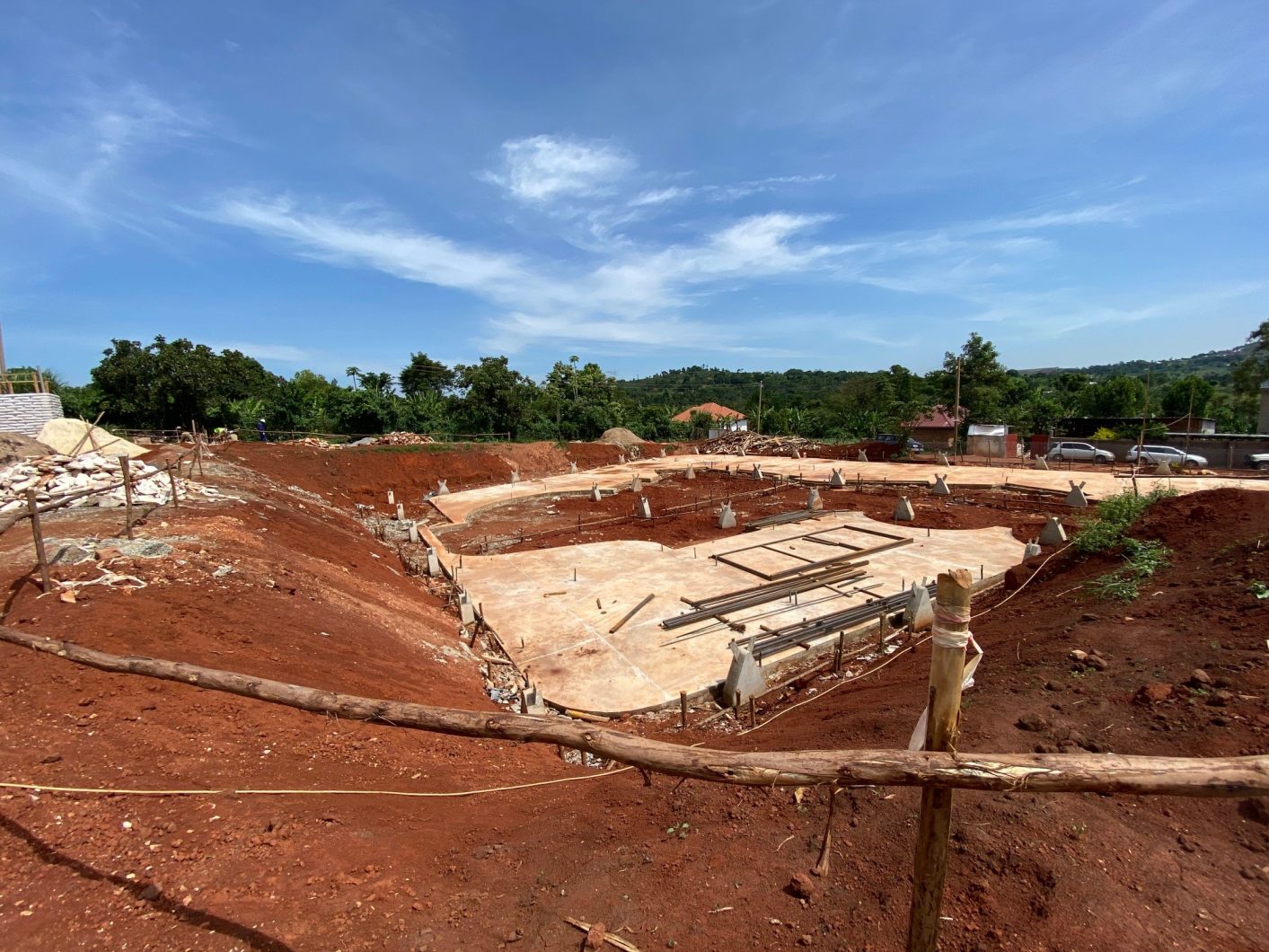
February half-term saw the Master, Helen Pike, visit Uganda where construction is underway on our partner school, The Mustardseed School in Sentema. It is set to open in February 2021.

The Master's
Uganda update
As you might recall, the week before half-term saw all Senior School pupils undertake a 10k challenge for the Mustardseed School. I am delighted to report that the week raised £7,450, and the total for the year stands at £13,000.
I spent half term in Uganda with the school’s founder, John Caird OW. Our priorities were: to visit the school site and meet the architect and construction and landscaping team; to meet formally and informally with other members of the Board of Trustees in order to prepare for the school’s opening next February; and to visit more existing primary schools in Uganda to build partnerships there and to learn more about the Ugandan education system.
The visit to the school site was encouraging. Under the direction of site manager Wilson Sendikwanawa, work on Phase 1 is progressing well.
We lost some time during the recent rainy season, but the team is confident that we can make this up by ‘crushing’ some tasks etc. The construction should be completed later this year, in order to give us some time for work on fixtures and fittings. We will also have the leadership team and teachers recruited, and there will be time for them to undergo some training onsite.
Here are some local carpenters, ensuring that the eucalyptus which was felled from the site is the correct length for the supporting pillars we shall need to hold up the roof.
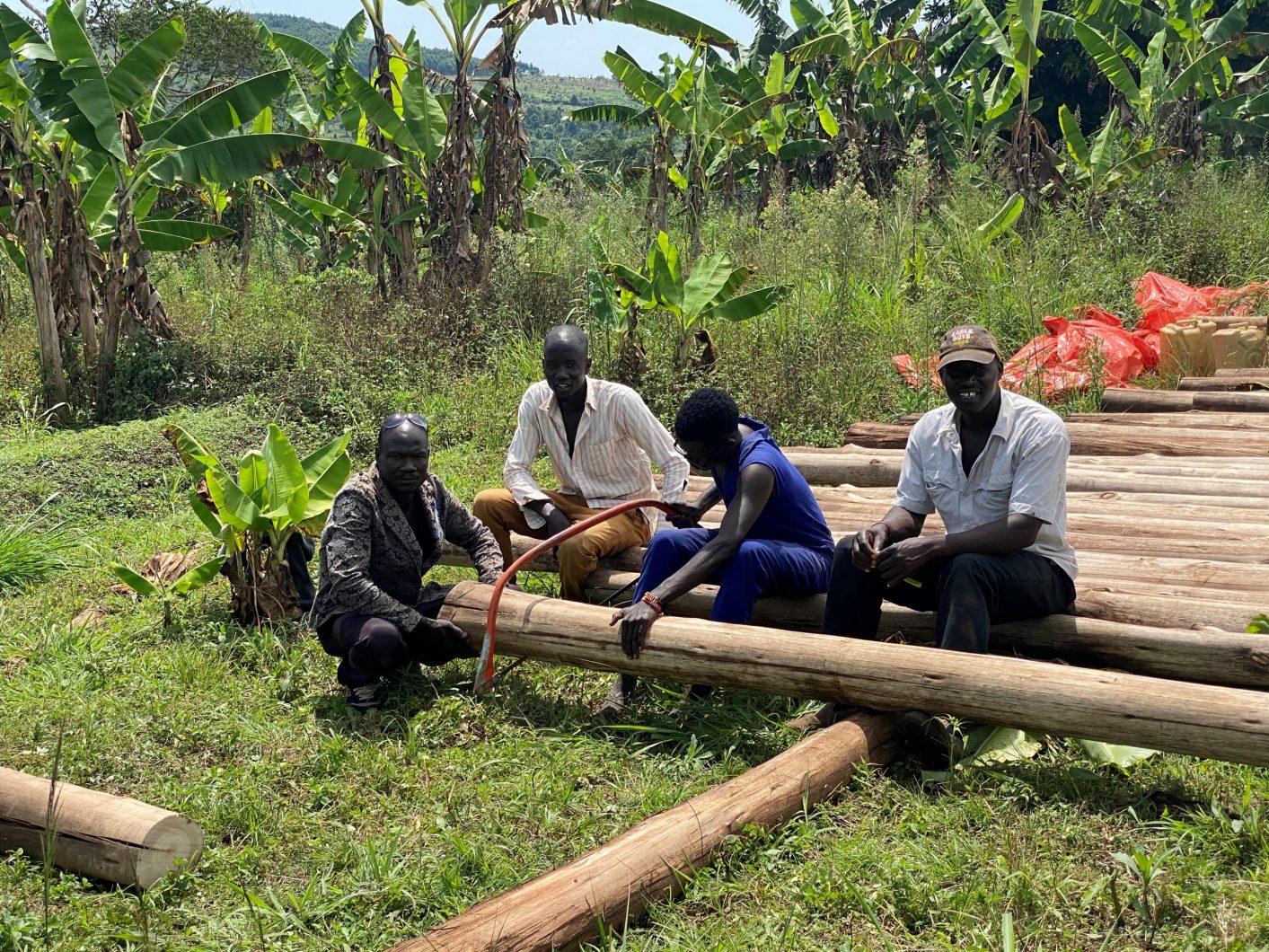
Eucalyptus is an invasive non-indigenous species which sucks water from the ground, so we are replacing it with more sustainable indigenous trees.
The construction makes use of earth-bag walls, which are cured onsite from local earth:
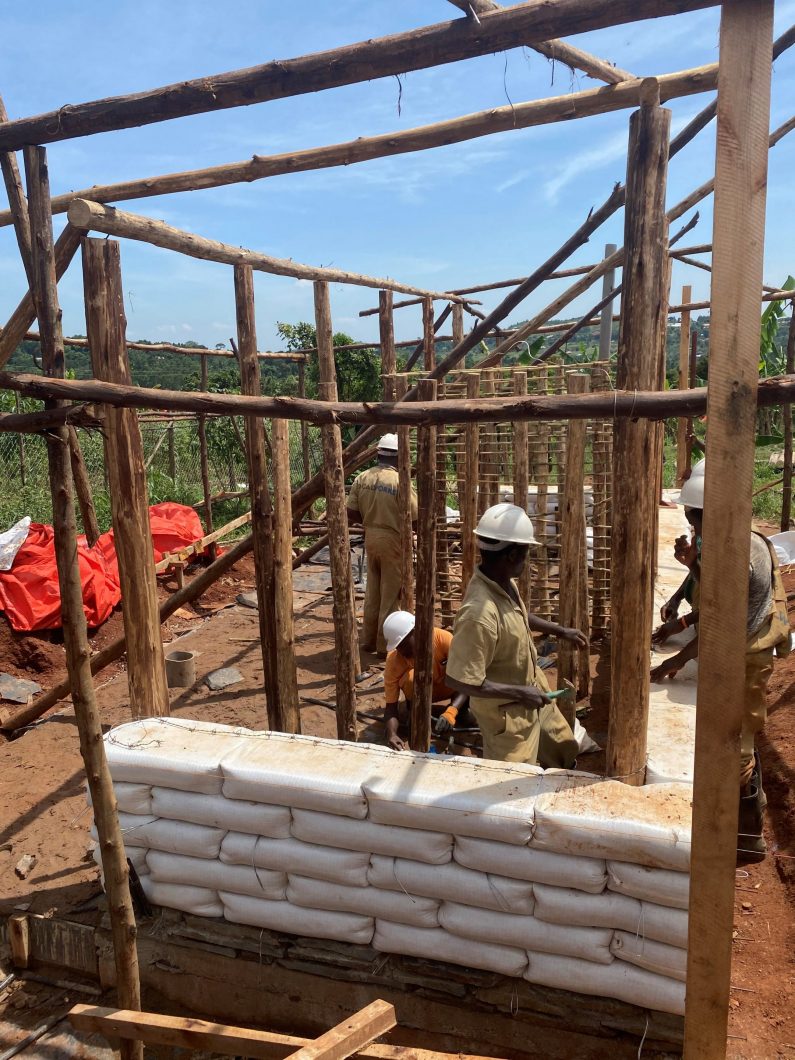
The climate means that we shall not need glass in our windows, and we are minimising the use of concrete. Some concrete has been added to the mix for this indestructible floor, which is being polished here to create a beautiful non-slip marbled effect:
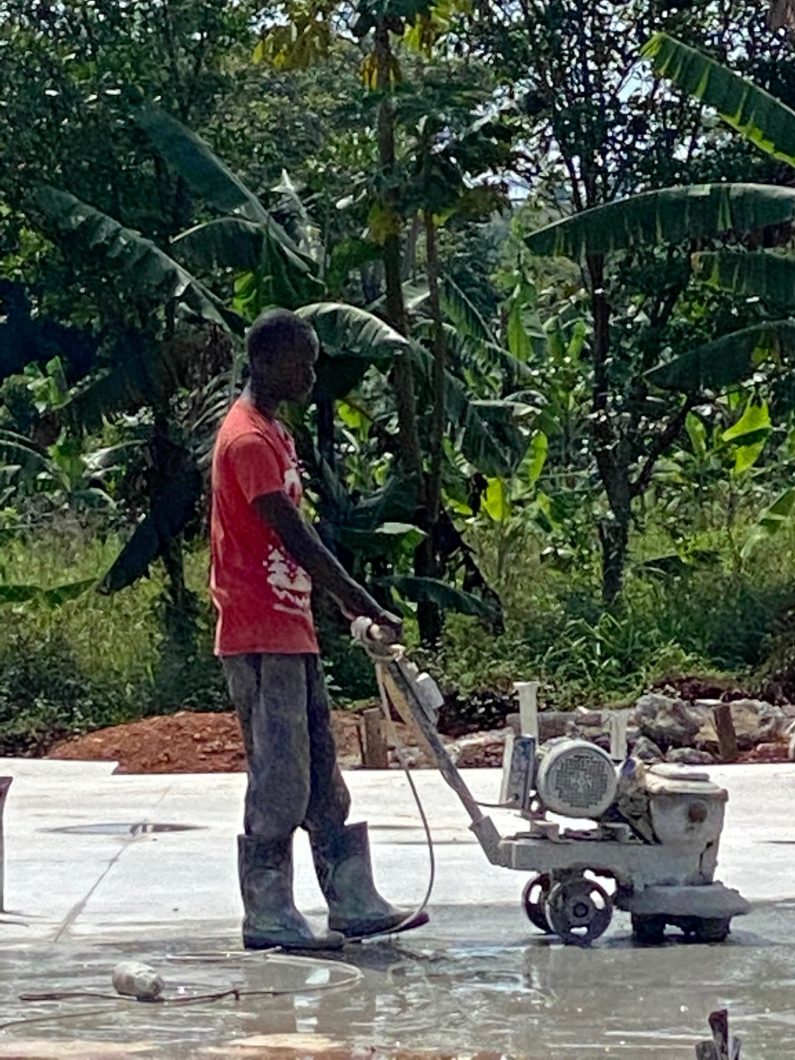
"Considerable thought is also being put into the school’s landscape and plant life, encouraging pupils to think sustainably and to care for their environment"
Considerable thought is also being put into the school’s landscape and plant life, encouraging pupils to think sustainably and to care for their environment. The school will have its own coppice and environmental study area. Water is drawn from a bore hole using a solar pump, and the kitchen will run on a biomass generator linked to the school’s sewerage. The biodiversity of the site—and of Uganda as a whole—will reward future study.
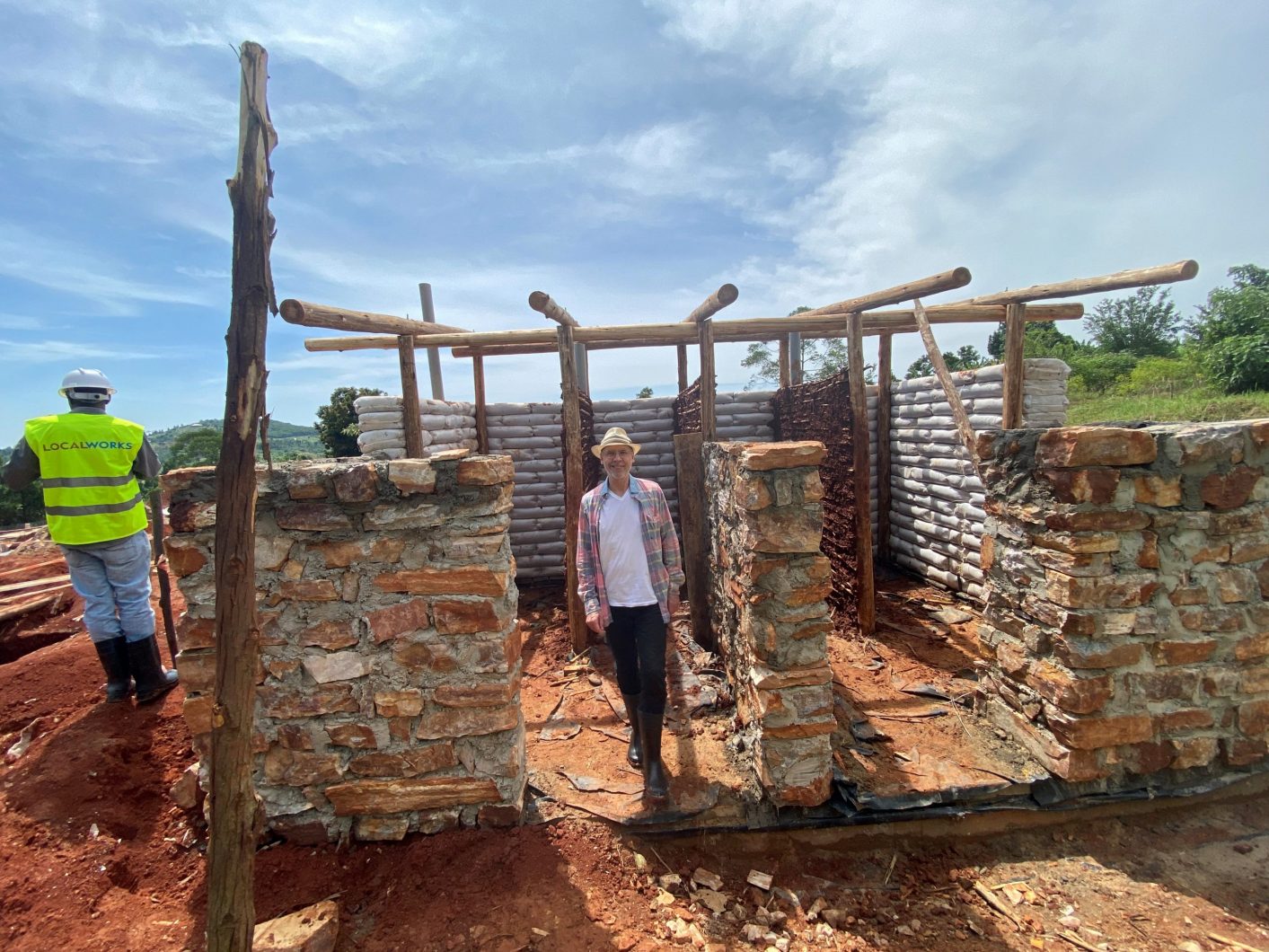
Most of Uganda’s citizens are subsistence farmers, and we drove for hours through maize fields, and sugar cane and banana plantations. There is a joke in Uganda that if you plant something, you need to leap backwards so it does not hit you as it grows. Yellow plastic canisters of water are a common sight, as people carry or wheel them on bicycles from bore holes. This boy is transporting papyrus mats.
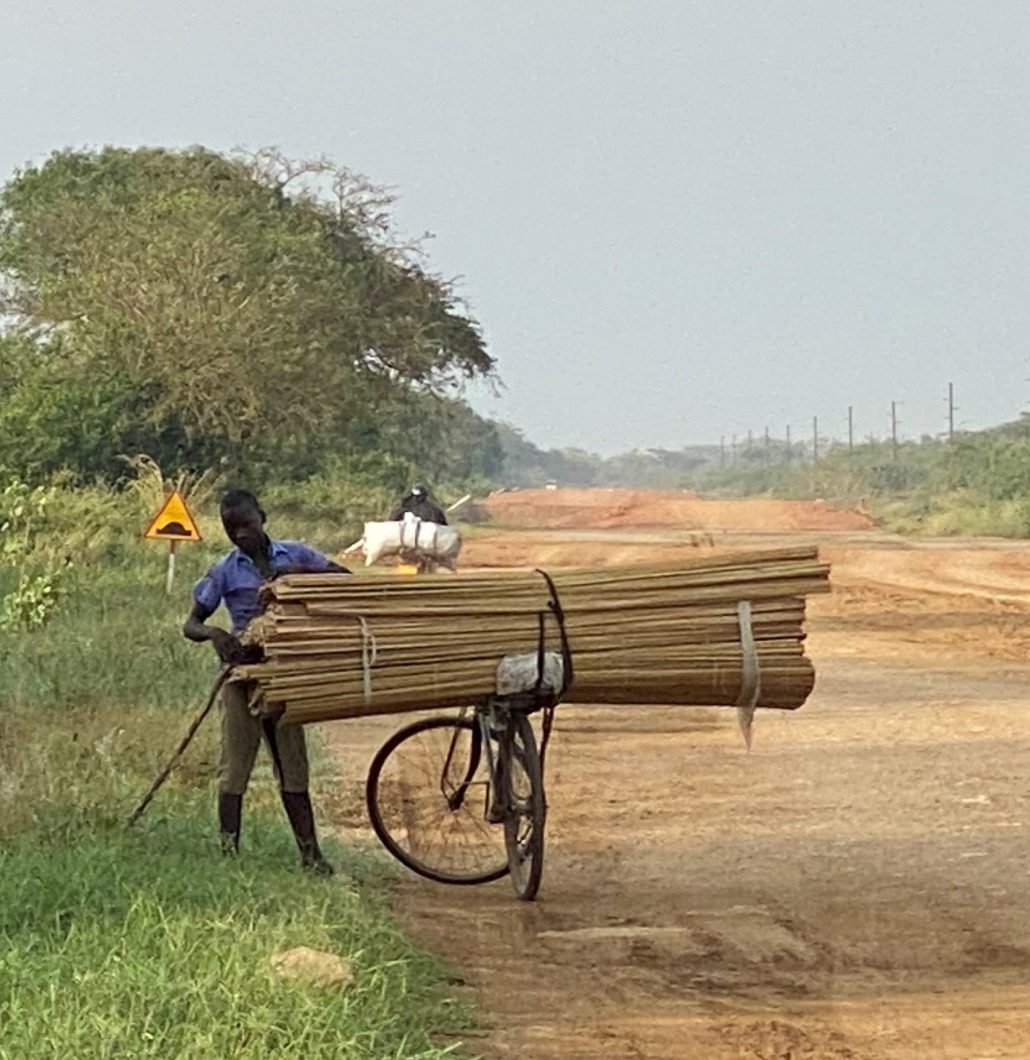
During our Board Meeting my fellow Mustardseed Trustees recorded their thanks for all that MCS is doing to support the Mustardseed School. We also revisited the key milestones for this year, not least the recruitment of key staff.
Thankfully, with so many avocados growing locally, we hope there will be no difficulty in recruiting millennial teachers!
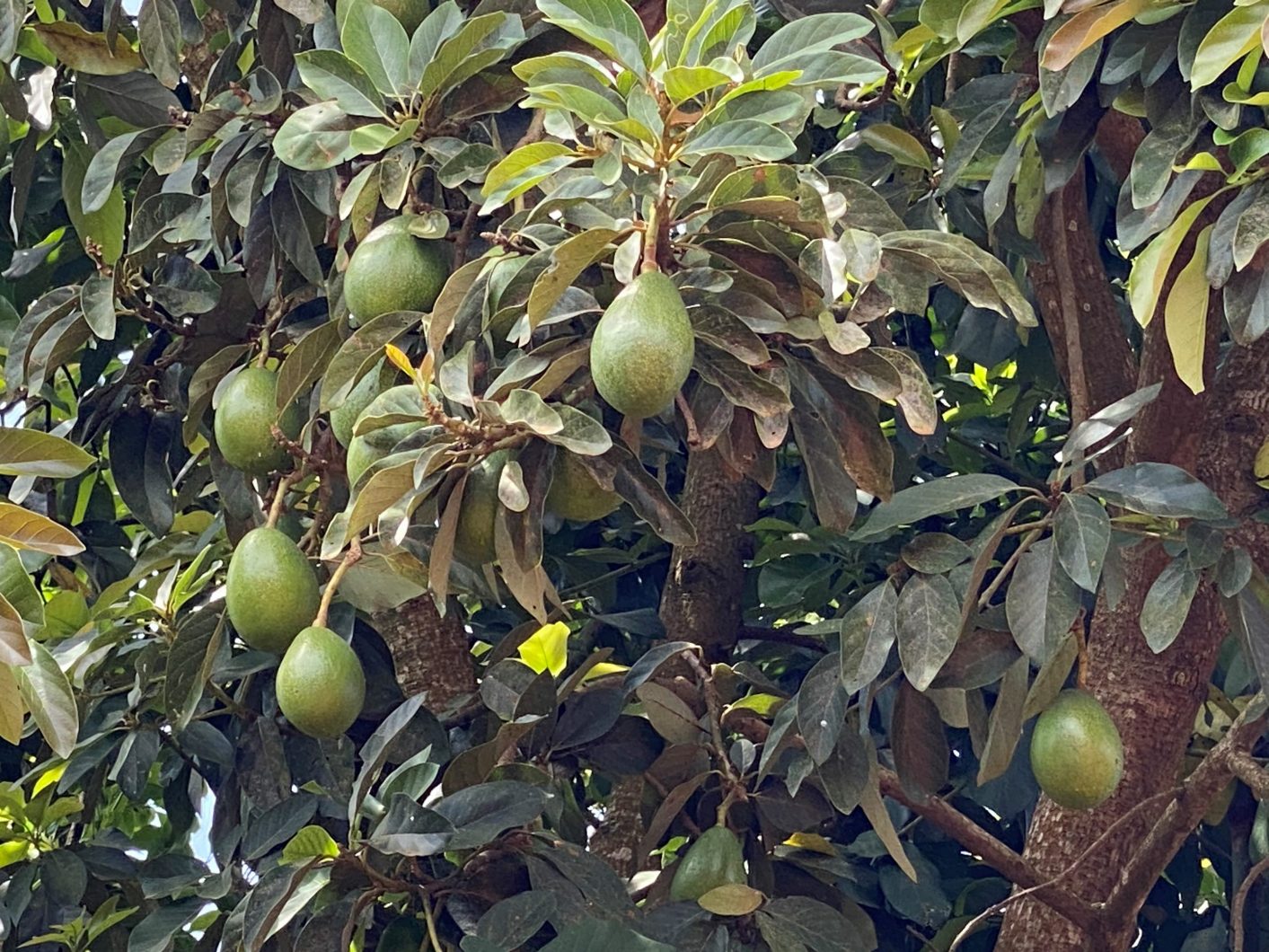
In mid-March we welcome Kenny Buwule, the first Director of the Mustardseed School, to MCS. He will be staying with me for a week, and will be at MCS observing lessons and various school events, meeting colleagues and getting a sense of the ethos of MCS as part of his professional development. When we have appointed a curriculum lead in Uganda, we will be able to have further and more detailed conversations about our educational links.
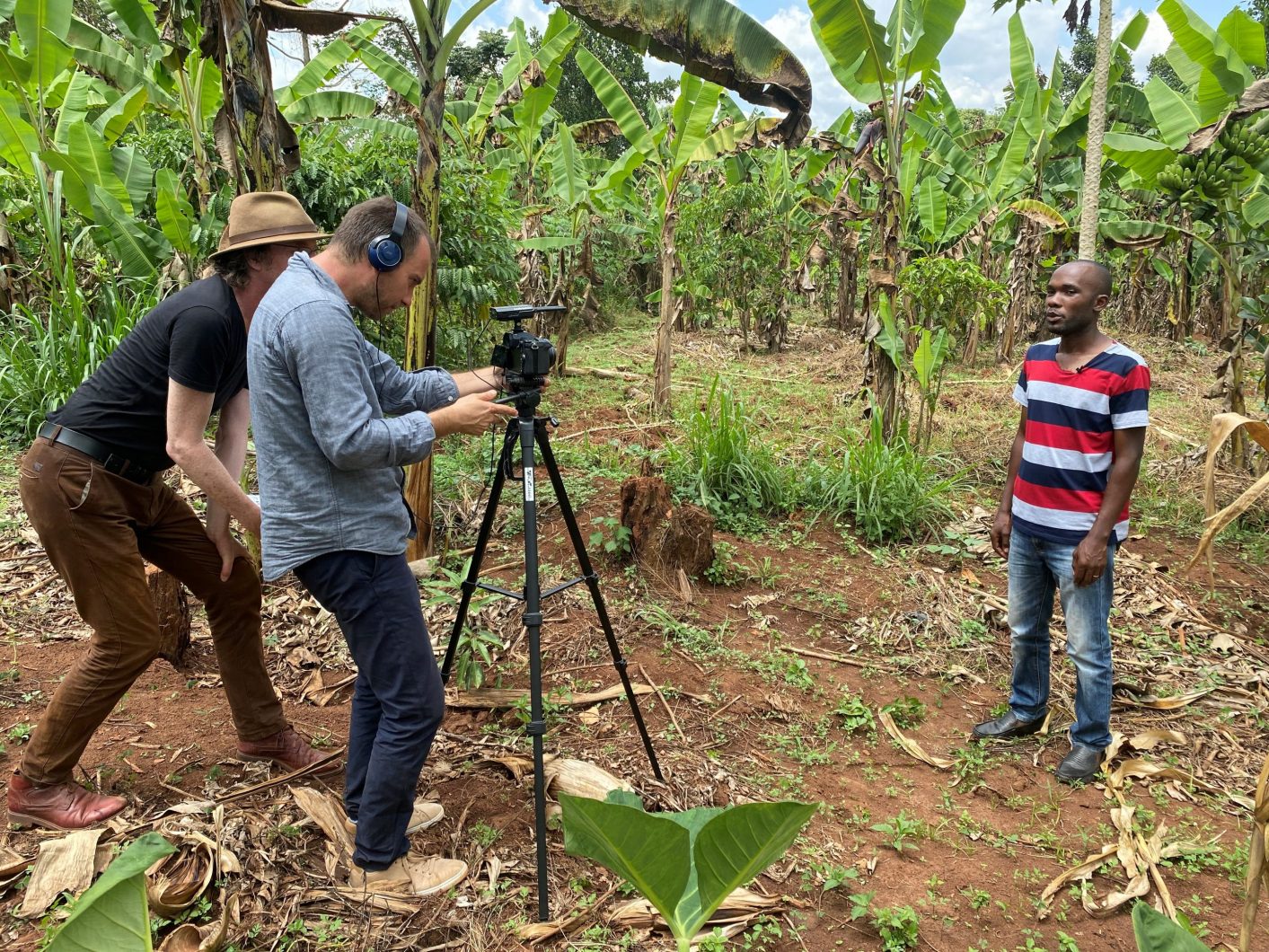
"In mid-March we welcome Kenny Buwule, the first Director of the Mustardseed School, to MCS. He will be staying with me for a week, and will be at MCS observing lessons, meeting colleagues and getting a sense of the ethos of MCS"
We also visited a number of schools in Kampala, including Bbira government school. This visit was notable for the near-riot which the launch of our photographer’s drone caused among the school’s 1,230 pupils.
Another short film on the Mustardseed project is in production; a link to it will follow soon.
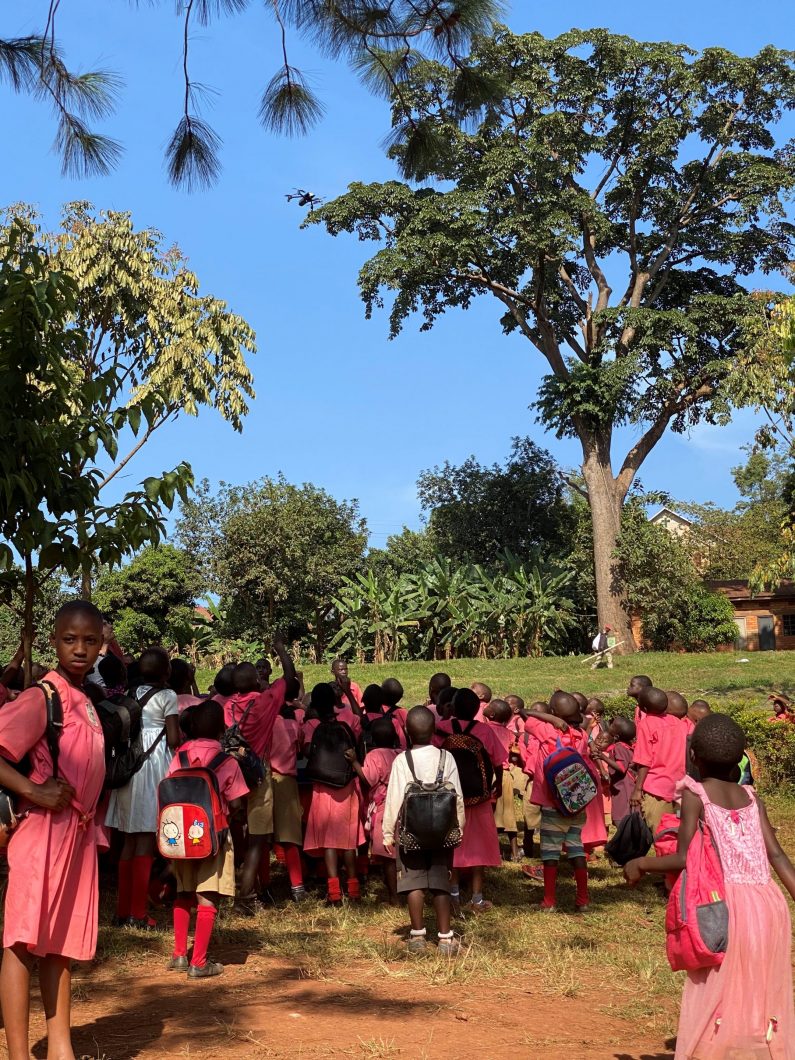
At the Ambrosoli School, we were given a tour by Head-elect Emma Norris, who is also a Mustardseed Trustee and an invaluable ally on the ground. Ambrosoli celebrates global citizenship better than any other school I have seen. And here is an example of recycled materials being used in art work:
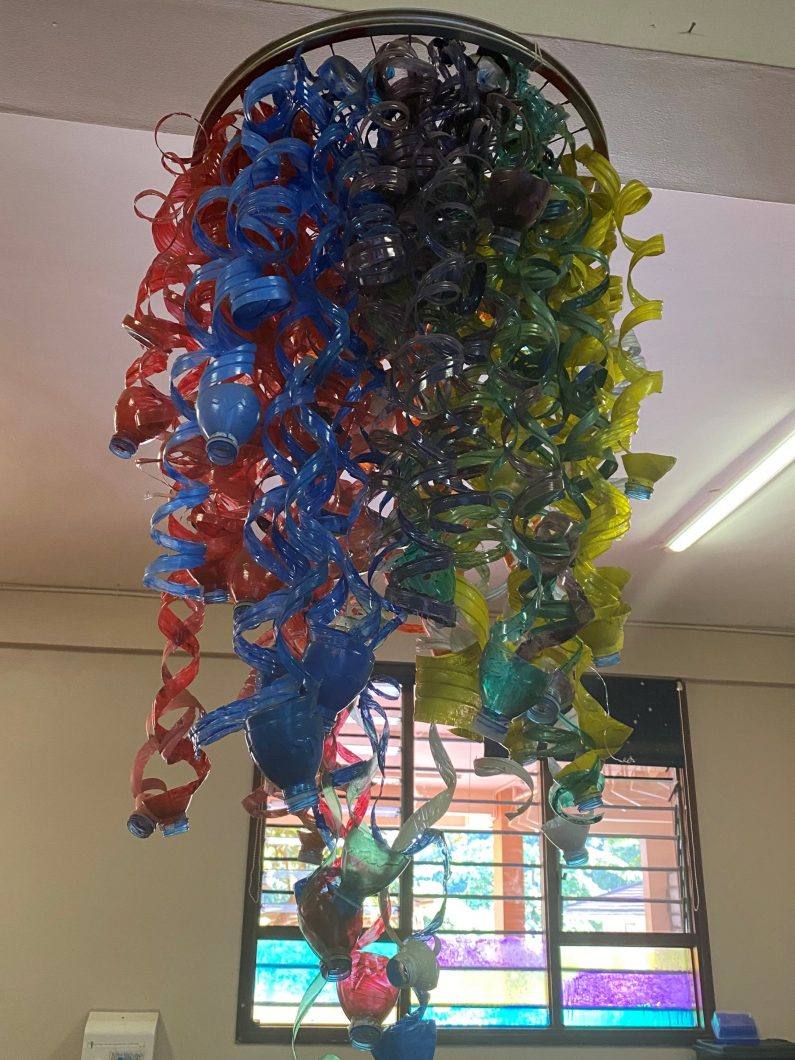
In addition to a productive four days of meetings, we headed up country to Murchison Falls National Park for a few days of exploration. The park is the size of Oxfordshire and Berkshire combined, and is a testament to the good stewardship which has benefited Uganda. During the time of Obote and Amin, poachers had all but destroyed the local wildlife population, and rhino were extinct in Uganda by 1983. Now, as you can see, animals are protected here. With the help of expert eyes of our ranger Wellborn, we saw over 140 bird species and many splendid animals.
In the early morning the savannah is bathed in pink light, and here an elephant looks for date palms by way of breakfast:
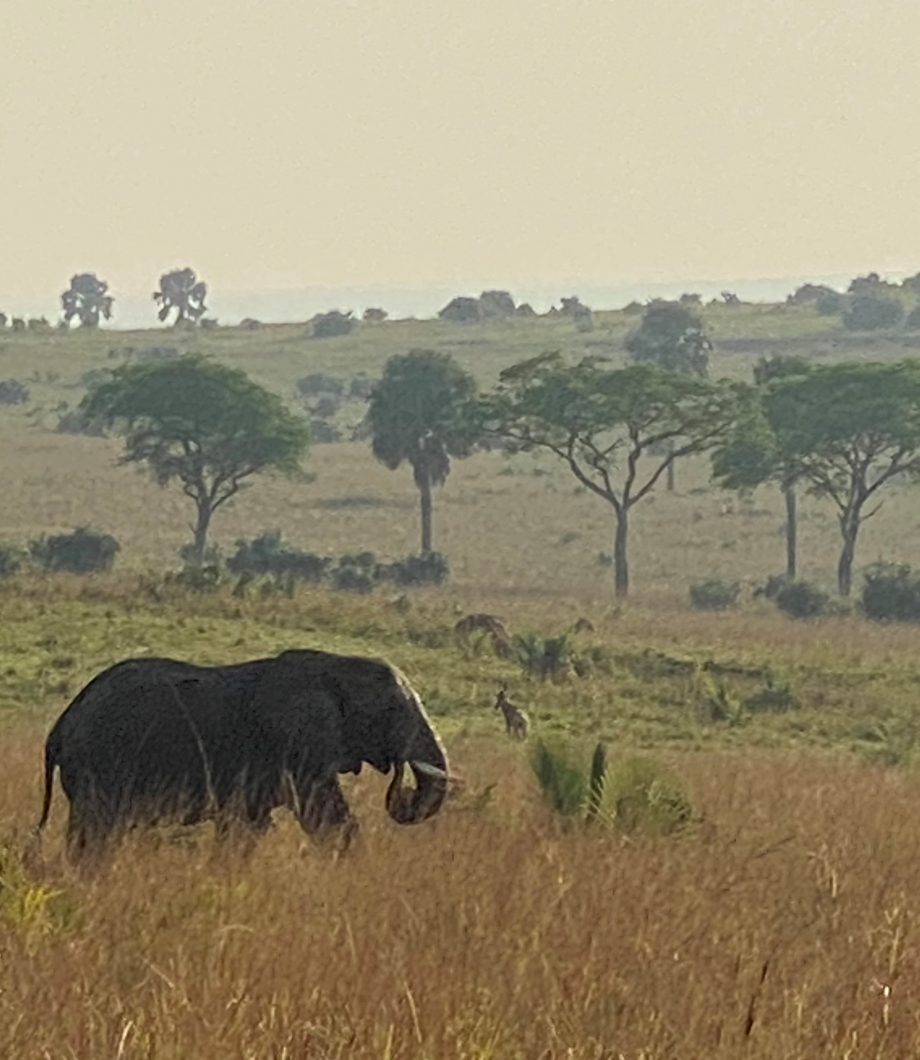
I am now besotted with giraffe:
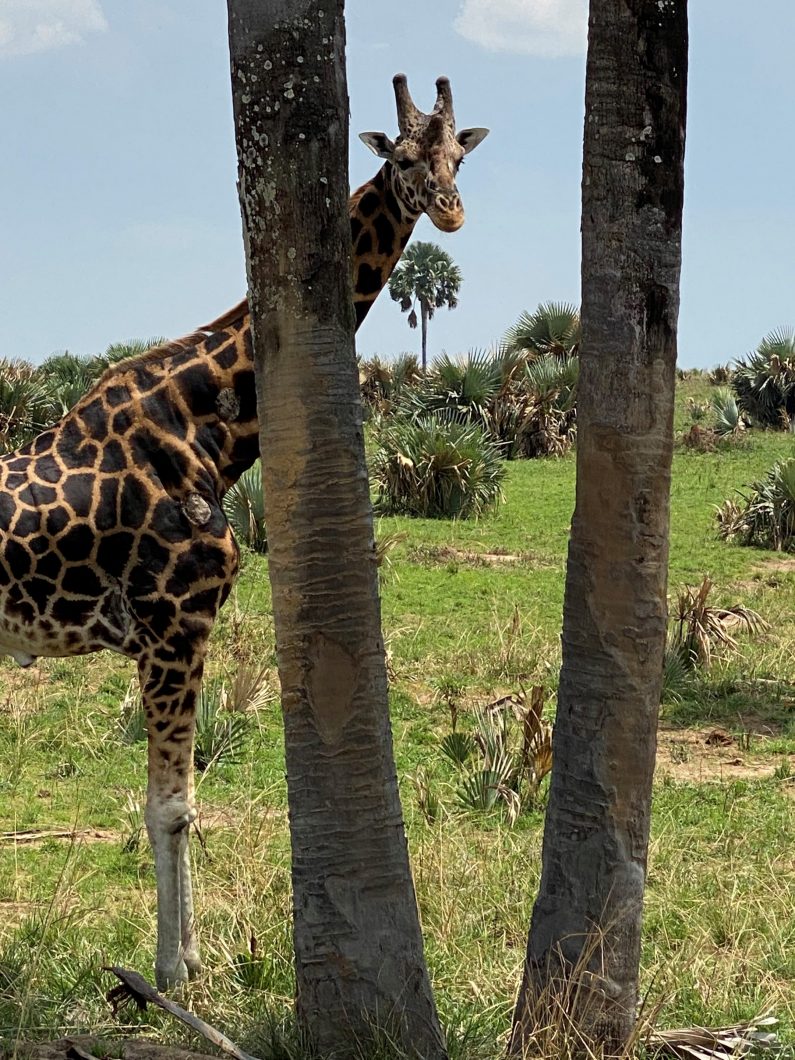
Here are two Oribi. They are looking suitably relaxed since the only lions we sighted were in the far distance, being seen off the premises by a water buffalo.
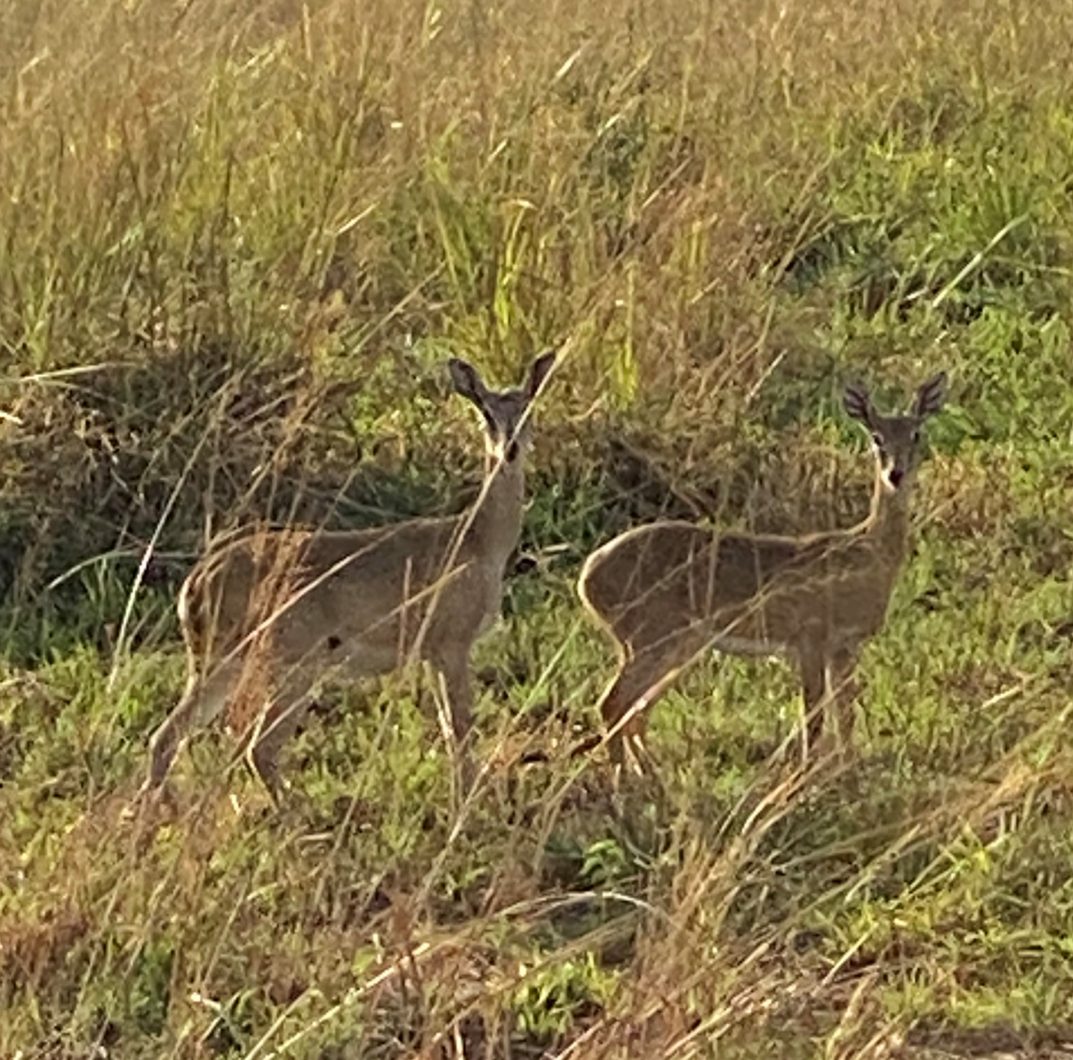
And as for the leopards? As we sailed up the Nile, we saw a water buck up a tree where a leopard had left it. In hope of a sighting, we returned at dusk; the leopard did not…..
At Murchison/Kabalega Falls, the whole of the Nile plunges through a seven-metre gap:
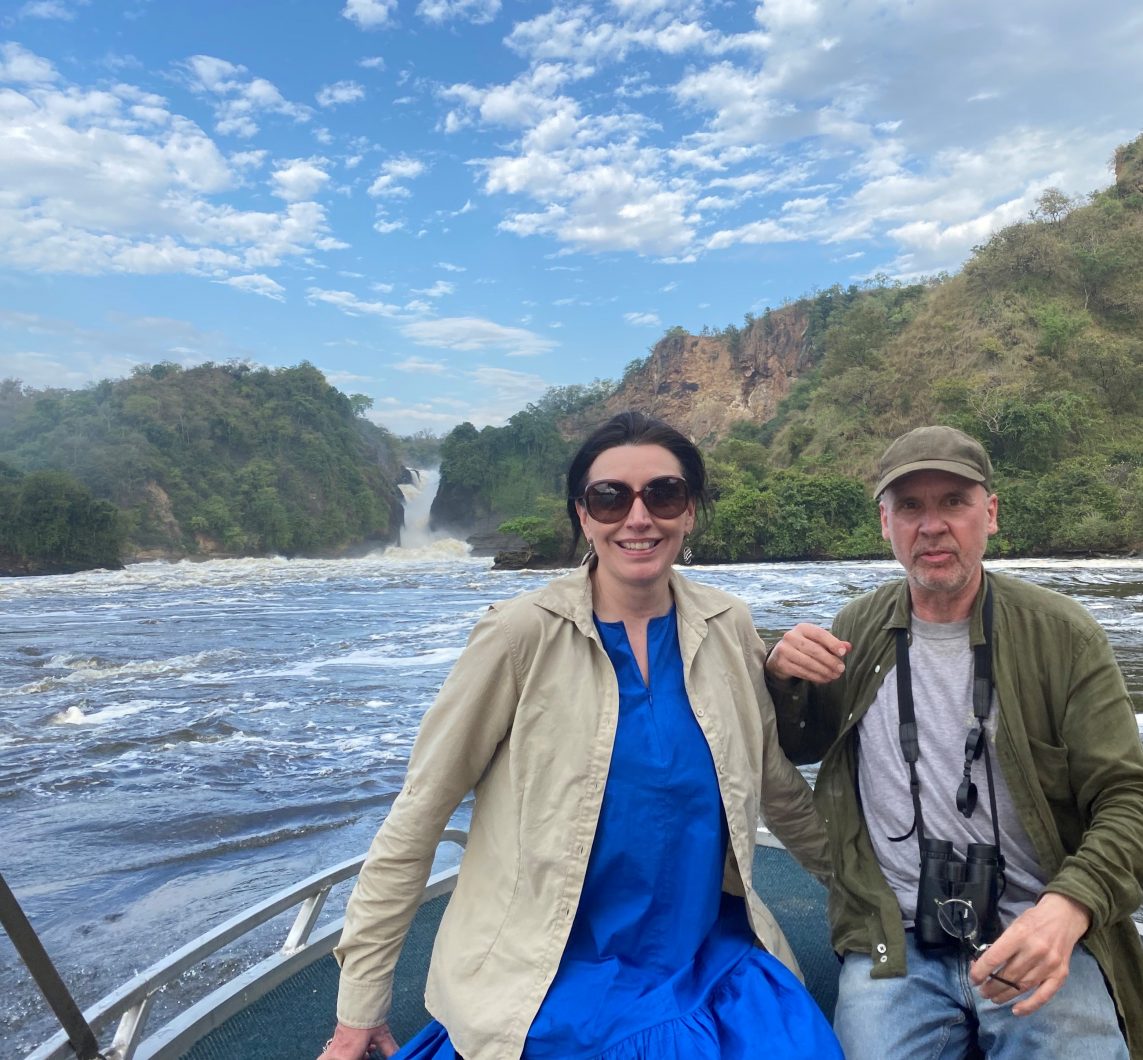
Our ‘game drive’ ended with a visit to the Nyamisika ridge, where we were able to see elephants wandering down to the river to drink. John took this panoramic video: it is a sight I shall never forget.
On Saturday night, a local group of musicians and dancers performed Ugandan music. Their finale was a song whose chorus was ‘if you educate a girl child, you educate the whole nation.’ The group was performing to raise money for their local primary school and we discussed our shared values and goals.
It was a privilege to witness the fine work of the Ziwa Rhino sanctuary, which has reintroduced the white rhino to Uganda.
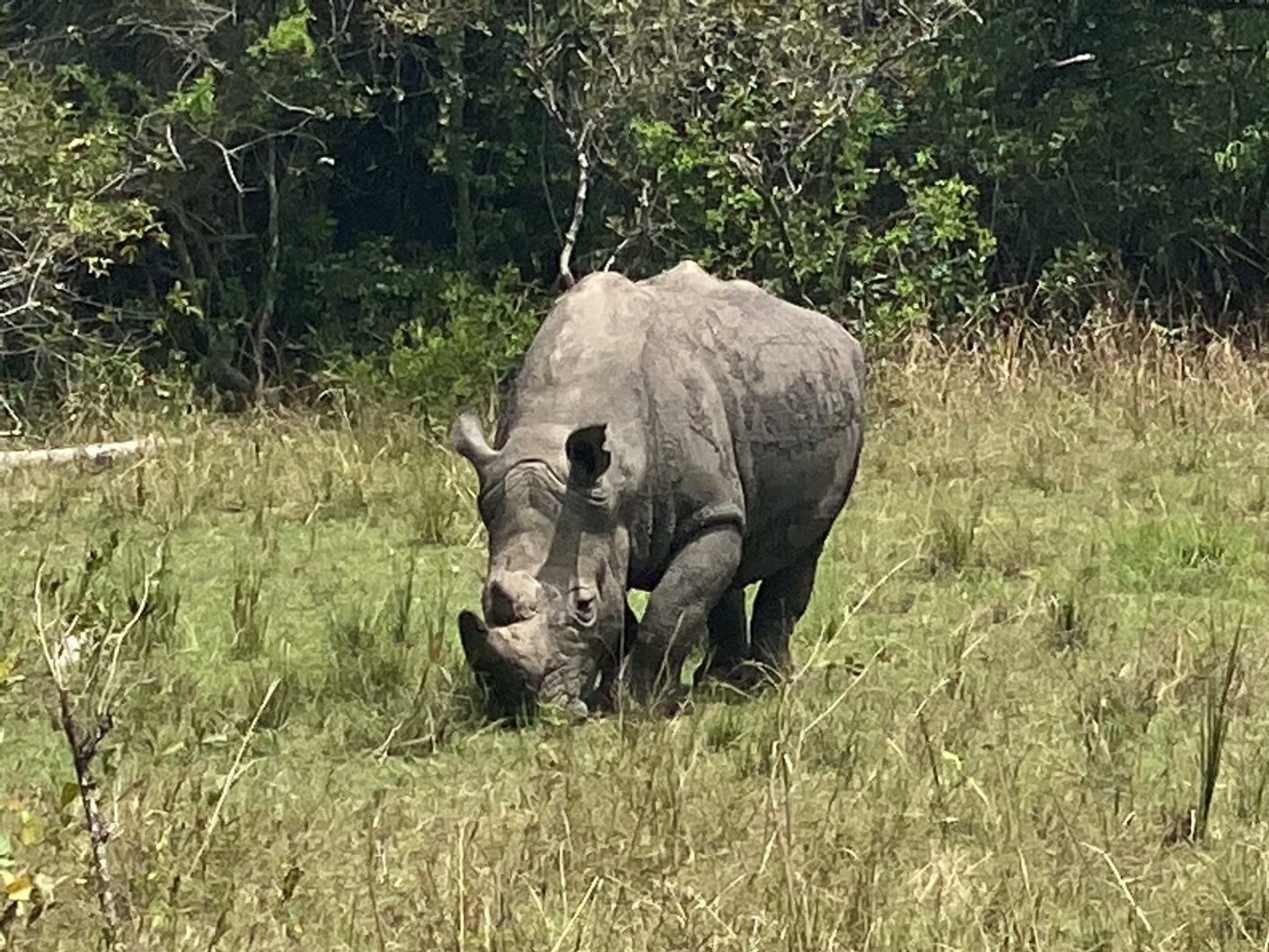
The sanctuary is a testament to the benefits of stewardship and stability in Uganda. It was instructive both to meet an American delegation who were in the area to open a new camp to deal with refugees from South Sudan; and also to gaze over Lake Albert and the border with the Democratic Republic of Congo. Uganda is a stable more settled place, and long may it remain so. As our guide put it, ‘Ugandans are happy people.’
"It is astonishing to think that - all things being well - in a year’s time we shall have a partner primary school in the rural outskirts of Kampala. I look forward to MCS staff, pupils and parents visiting it, and to the opportunities for learning that this project brings us"
Helen Pike, Master
It is astonishing to think that – all things being well – in a year’s time we shall have a partner primary school in the rural outskirts of Kampala. I look forward to MCS staff, pupils and parents visiting it, and to the opportunities for learning that this project brings us here in Oxford.
…
You can help support MCS in its fundraising efforts for The Mustardseed School here.
 MCS ranks among the top independent secondary schools, and in 2024 was awarded Independent School of the Year for our contribution to social mobility.
MCS ranks among the top independent secondary schools, and in 2024 was awarded Independent School of the Year for our contribution to social mobility.

 28 of our pupils achieved 10 or more 8 or 9 grades in 2024.
28 of our pupils achieved 10 or more 8 or 9 grades in 2024.
 In 2023-24, MCS received over £448,000 in donated funds.
In 2023-24, MCS received over £448,000 in donated funds.